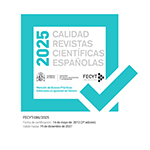"Crecimientos, reducciones y no cabimientos de juros". Three Episodes of Irresponsible Managment of Long-Term Debt in Seventeeth-Century Spain
Abstract
During the sixteenth century the Royal Treasury of Castile felt compelled to increase tax collection in order to meet its funding needs, as a consequence of the ceaseless growth of the public debt in the form of juros. However, by the seventeenth century, it was becoming more and more difficult to comply with that target, as the general economic situation was getting worse and the Monarchy’s expenditure persisted to an exceeding degree, whereas new securities continued to be issued. Therefore, the Crown had no choice but trying to control its own debt, taking measures to reduce the interest to be paid annually. This article analyses some of those measures but, above all, it assesses their consequences not only for the public debt and the monarchical policy, but also for the general financial and social course.Downloads
Article download
License
In order to support the global exchange of knowledge, the journal Cuadernos de Historia Moderna is allowing unrestricted access to its content as from its publication in this electronic edition, and as such it is an open-access journal. The originals published in this journal are the property of the Complutense University of Madrid and any reproduction thereof in full or in part must cite the source. All content is distributed under a Creative Commons Attribution 4.0 use and distribution licence (CC BY 4.0). This circumstance must be expressly stated in these terms where necessary. You can view the summary and the complete legal text of the licence.












